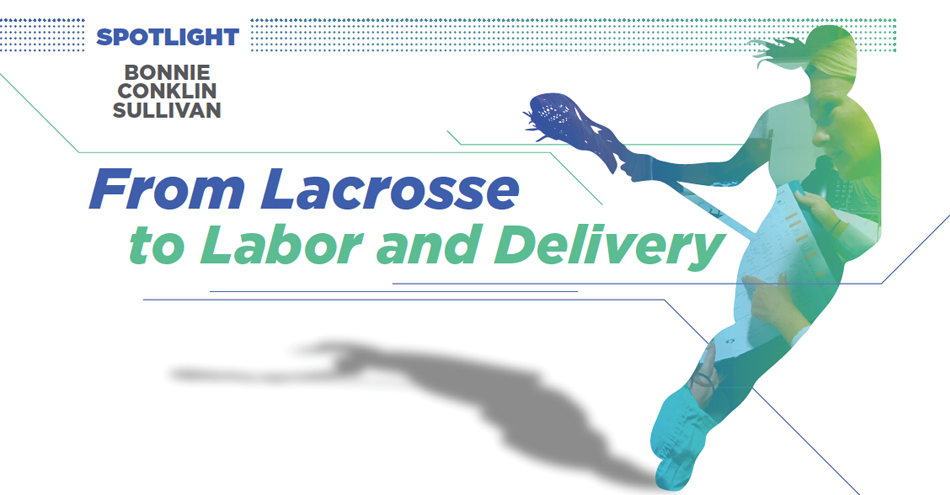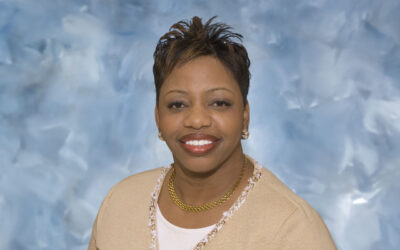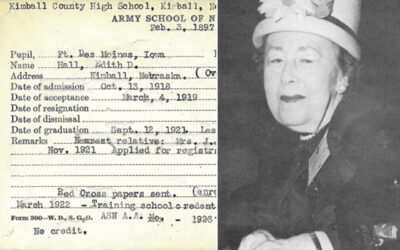By Matt Skoufalos
Born and raised in Suffern, New York, Bonnie Conklin Sullivan grew up the daughter of a nurse and granddaughter of a medical receptionist. A gifted lacrosse player, she captained her team at George Mason University as a defender-midfielder while earning her bachelor’s degree in kinesiology and exercise science. Conklin Sullivan went on to coach NCAA-Division I lacrosse at James Madison University, but as much as she loved the game, she worried that she wouldn’t be able to raise a family while coaching.
“Back then there weren’t many female coaches getting married and having children,” she said. “I looked for the next best thing: coming from a nursing family, I thought, ‘I’m going to coach women to have babies.’ ”
Conklin Sullivan decided to move home and pursue a nursing degree from Rockland Community College; upon graduating in 2003, she was soon picked up by NewYork-Presbyterian Hospital, and has worked in labor and delivery ever since. She’s since moved back to Suffern to work at Good Samaritan Hospital, a move that Conklin Sullivan said illustrated the distinctions between working at a high-volume teaching hospital and at a smaller, community hospital. Although “both are great environments,” nurses in community hospitals must be versatile and self-sufficient, she said.
“We don’t have in-house obstetrical doctors,” Conklin Sullivan said. “Patient care is more critical. You’re required to put your thinking cap on and be on top of your nursing skills, soup to nuts, all the time.”
The intensity level can be different, too, she said. The Weill Cornell Medical Center’s Level I NICU receives high-risk pregnancy cases, whereas Good Samaritan often transports such women and their babies to a center like Cornell. In labor and delivery, some patients will seek a boutique standard of care, and because so much of patient feedback affects their rating, hospitals cultivate patient experience, which happens at the bedside.
“It’s much more of a priority to make sure patients understand what’s going on, that they’re satisfied with their care, and that their questions are being answered,” Conklin Sullivan said. “Patient education is more detailed, patient responses, and how much they want to learn, has really come a long way.”
As a result, she said, demands placed on nurses increase consistently, sometimes not in a way that’s commensurate with their compensation or opportunity to earn more: even with overtime, nurses who want to stay in patient care won’t achieve the wage scale of those who earn advanced degrees and seek leadership roles. But for Conklin Sullivan, the job is all about working with patients, and a higher-level assignment could take that away from her.
“The only way you can make more money is going back to school and being a manager or a nursing supervisor,” she said. “They don’t have patient care, and I love that contact with patients and that interaction.”

Interaction is a big part of what Conklin Sullivan loves about her occupation. As a former college lacrosse player and coach, the concept of teamwork and group effort resonates deeply with her. She fondly recalls “huddles” with the staff at NewYork-Presbyterian as helping keep members of the unit on the same page before and after surgical interventions, emergency cases, and other interactions. The cohesion such an approach instills within members of the staff lasts long after their patients are discharged, she said.
“They made sure everybody on the unit was aware of what’s going on,” Conklin Sullivan said. “Everybody on the floor knew what was going on in every room. It was such a team concept, and I loved it. That’s vital to patient care.”

“Being in sports and always being a part of a team has helped me, and that’s helped me in my nursing field,” she said. “I love helping other nurses and I love when other nurses help me.”
Conklin Sullivan feels a shared value of teamwork among her colleagues at Good Samaritan as well. Whether it’s five minutes before her shift change and a delivery case is admitted, or she’s headed out the door and a colleague suddenly faces an emergent need, they all support one another.
“I’ll never see another nurse admit a patient alone,” she said. “You want someone to help you when you’re struggling; you’ve got to help others as well. The night shift at Good Sam, that’s what we pride ourselves on. I’ve never been alone. Someone peeks their head in and says, ‘I’m here for you.’ ”
“Those words go so far for me because I feel like I have help outside the door,” Conklin Sullivan said, “and that makes me give better patient care. I’m not stressed. I’m not nervous. And, I’m a competitive person. I want the best delivery, the safest delivery, the best care, and I want that patient to feel like they got the best. It’s the same concept.”
Just as strong as her competitive spirit are Conklin Sullivan’s instincts as a coach and her training in kinesiology. Knowledge of body mechanics and the psychology of high-stress situations come in handy when she’s coaching birthing techniques or working as a lactation consultant. In both circumstances, she provides personal care and shares moments of intensity – and Conklin Sullivan doesn’t think she’d ever pursue a role in leadership if it means she’d have to give that up.
“This is the ultimate goal,” Conklin Sullivan said, “being in with a patient in labor who pushed to deliver her dream. It’s my dream. I don’t want any more.”









